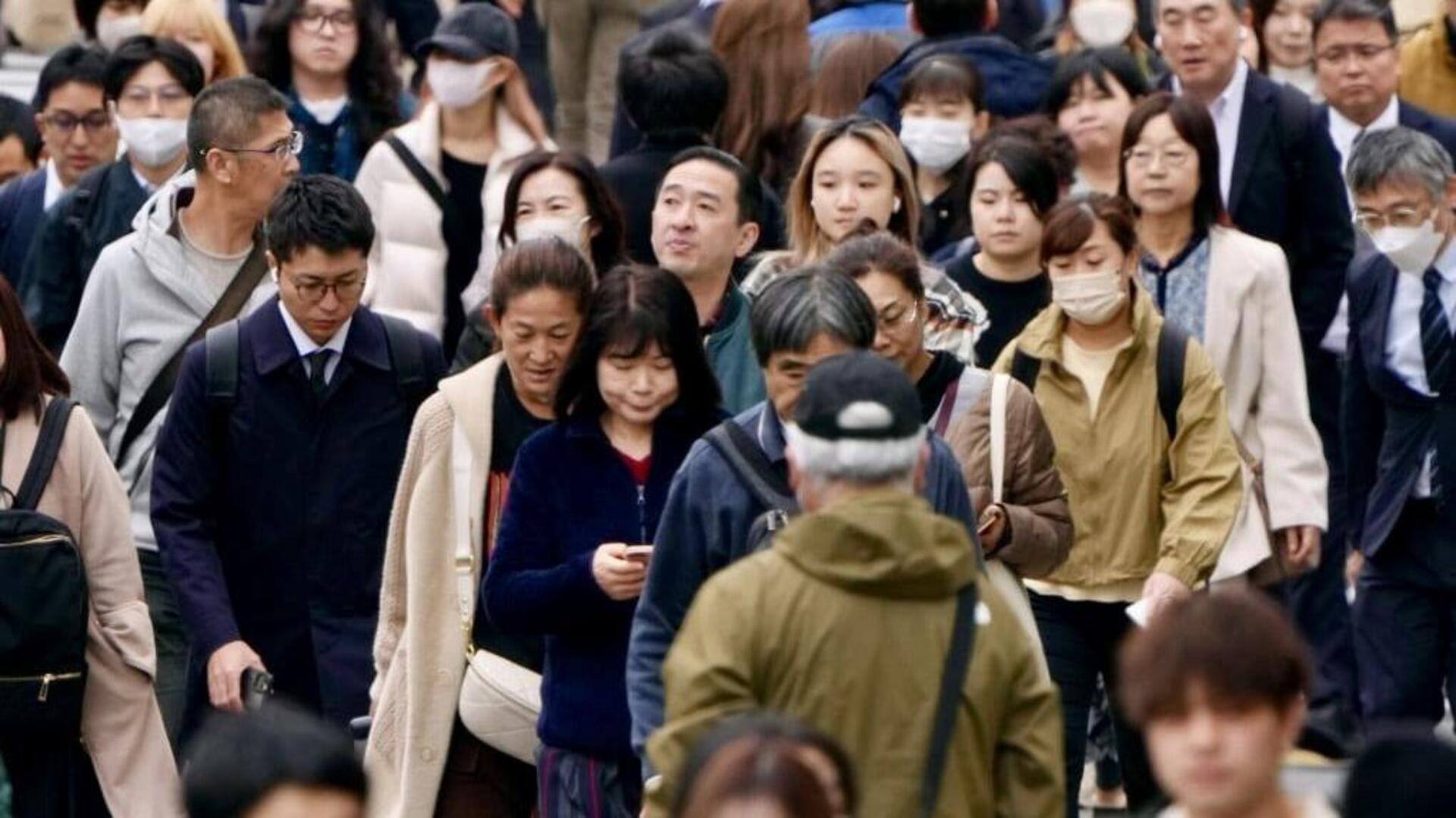
Pessimism rising in Japan; 70% feel country on downward trend
What's the story
A recent global survey by Ipsos has revealed that 70% of Japanese respondents feel their country is on a downward trend. This marks a significant increase from 2016, when only 40% felt the same. The survey also found Japan's pessimism to be higher than the global average of 57%. Only France and Turkey had higher percentages of respondents believing their countries were in decline.
Global perspective
'Profound pessimism is setting in across the globe'
Ipsos has described the findings as part of a larger global trend, saying, "The diagnosis is stark: across the globe, a profound pessimism is setting in." The survey results also highlight a growing sense of societal fracture in Western democracies such as the United States, Britain, and France. However, this sentiment has also spread to other regions, including Japan.
Underlying factors
Economic stagnation, political alienation major concerns for Japanese
The survey results indicate that economic stagnation, political alienation, and social consequences of immigration are major concerns for the Japanese. These issues have contributed to a growing sense of pessimism among respondents. "I am totally in agreement with the majority," said Sumie Kawakami, a social sciences lecturer at Yamanashi Gakuin University.
Lecturer
Generation of Japanese living through the 'bubble years'
"There is a generation of Japanese who lived through the 'bubble years' of the late 1980s and experienced that economic boom who now look back at how the country used to be," she told This Week in Asia. "They never thought about the cost of eating out or going out, they traveled abroad because it was easy and cheap and everything was possible," she added.
Report
53% of Japanese believed their society is 'broken'
In addition to the headline figure on national decline, the Ipsos survey indicated that 53% of Japanese respondents believed that their society is "broken." This is an increase of 21 percentage points from 2019, yet it is still below the global average of 56%. Most people also agreed with claims that the economy is unfairly skewed in favor of the rich and powerful, that major political parties don't speak for regular people, and that the country needs a "stronger leader."